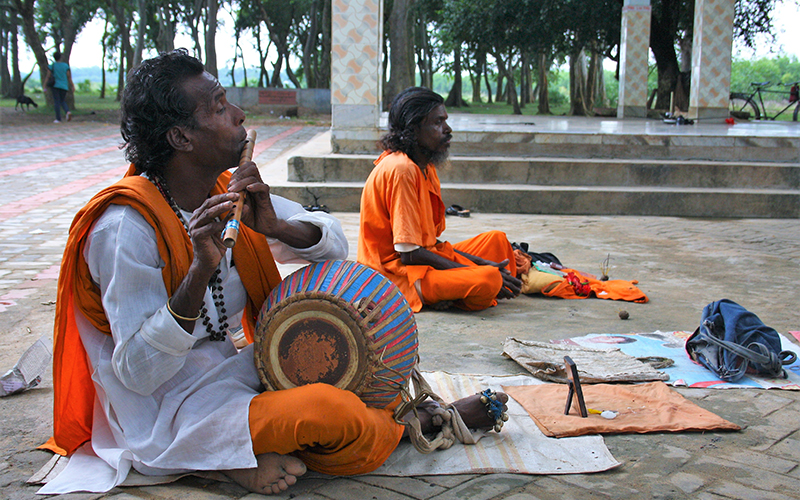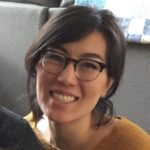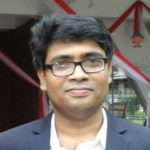
In 2008, the Bangladeshi folk song tradition known as Baul gaan was among the first forms of intangible cultural heritage to be listed by UNESCO as endangered. Intangible or “living” cultural heritage includes language, food, folk arts, festivals, and other traditions handed down between generations, and often requires a different approach to preservation than artifacts or historic sites. In this episode, host Nicole Kang Ferraiolo talks to media and culture scholar Saiful Alam Chowdhury about living heritage in Bangladesh, the urgency of preservation in a country vulnerable to the impacts of rising sea levels, and the role of media in getting people to take action.
Md Saifuddin Khalid & Md Saiful Alam Chowdhury. 2018. “Representation of intangible cultural heritage of Bangladesh through social media.” Anatolia, 29:2, 194-203.**
What is Intangible Cultural Heritage? (UNESCO)
The Wishlist for our Heritage (The Daily Star, Bangladesh)
Our Story of Dhaka Muslin (Aramco World)
The Muslin Story (The Daily Star, Bangladesh)
Indigo (Banglapedia)
Bhattacharya, Subhas . 1977. “The Indigo Revolt of Bengal”. Social Scientist. 5 (60): 17. JSTOR 3516809.
Baul Songs (UNESCO)
Climate Displacement in Bangladesh (Environmental Justice Foundation)
Why Climate Change is a ‘Threat Multiplier’ (Yale Climate Connections)
Climate Change, Extreme Poverty and Human Rights: Report (UN Office of Human Rights)
Climate Change Could Mean More Terrorism in the Future (UN Office on Drugs and Crime)
UNDP Climate Security Nexus and Prevention of Violent Extremism (UN Development Programme)
Sources marked by ** are writings by this episode’s guest.
Music
Featured Baul Gaan: “Milon hobe koto dine.” Lyrics by Lalon and music by Anupam Roy, Babul Supriyo, and Satyaki Banerjee. Listen to the full song here with lyrics and English subtitles.
* Disclaimer from music source on fair use in Bangladesh: “Copyright Disclaimer Under Section 107 of the Copyright Act 1976, allowance is made for “fair use” for purposes such as criticism, comment, news reporting, teaching, scholarship, and research. Fair use is a use permitted by copyright statute that might otherwise be infringing. Non-profit, educational or personal use tips the balance in favor of fair use.”
More from our guest
Behind the Mic

Nicole Kang Ferraiolo
Nicole Kang Ferraiolo is CLIR’s director of global strategic initiatives. She was previously a program officer for CLIR’s regranting and fellowship programs. Prior to that, Nicole worked at Columbia University where she oversaw several projects including an interdisciplinary research program on global governance that focused in turn on nuclear proliferation, pandemics, religious conflict, and climate change.

MD Saiful Alam Chowdhury
MD Saiful Alam Chowdhury is an associate professor in the Department of Mass Communication and Journalism, at the University of Dhaka, Bangladesh. He has an Erasmus Mundus Joint Master’s Degree in Media Arts Cultures (Danube University/Aalborg University/University of Lodz) and an MA in Mass Communication and Journalism from the University of Dhaka. Before joining the teaching profession, he worked as a journalist for more than 11 years and was named best investigative reporter in the years 2003 and 2004 in recognition of outstanding reports on Islamic militancy and crime. Mr. Chowdhury’s research focuses on media and culture, media technology and community development, cultural heritage, social media, and related topics. He is the author of four books and has consulted for UNICEF. He is currently pursuing his Ph.D. in Media, Politics & Culture at the University of Sussex, UK.
